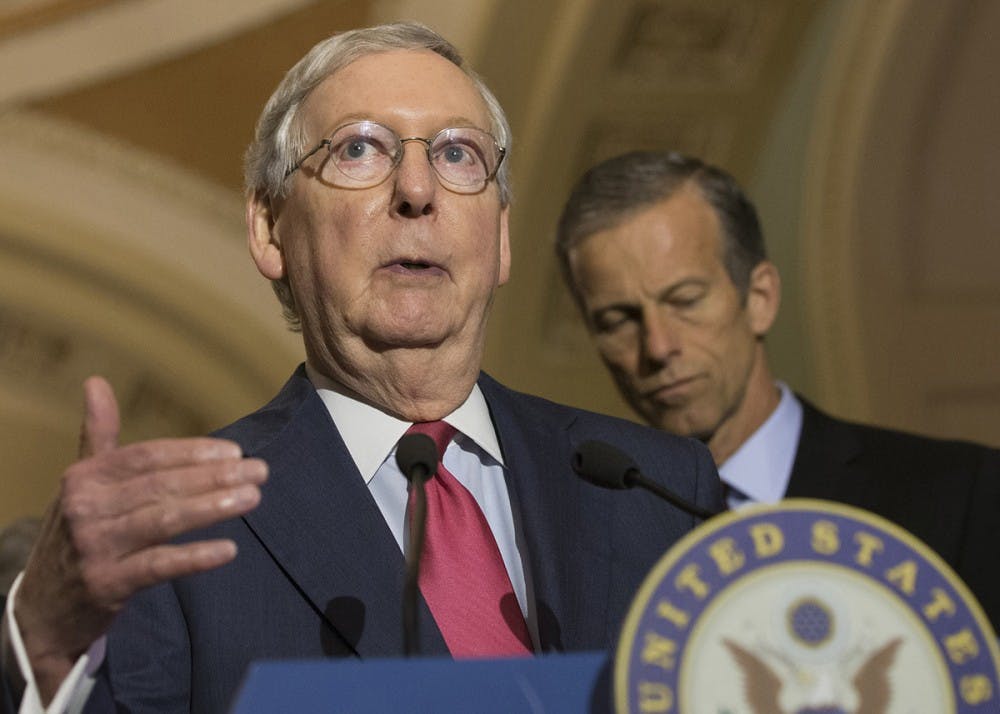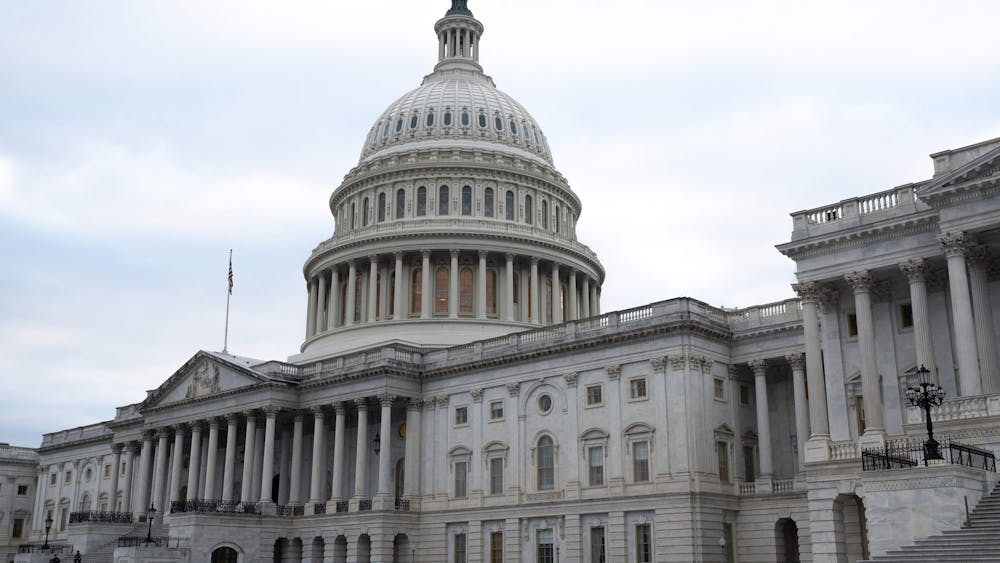The House and Senate voted Wednesday to pass a finalized version of changes to the current tax code, the biggest legislative victory for Republicans since they gained control of the White House.
The tax overhaul bill passed along party lines, 51-48 in the Senate and 224-201 in the House after some procedural issues late Tuesday evening and Wednesday morning.
The House vote on Wednesday was its second of the week because the bill needing revision to fit within Senate's budget rules. On Friday, the bill was signed by President Trump and is now set to become the law of the land.
While it includes many changes, the bill will not allow United States citizens to fill out their taxes on postcards, a major talking point of Republicans pushing for a tax code overhaul.
The $1.5 trillion tax bill provides significant alterations to the tax code, although not as many as originally thought. And for some, including graduate students, that is a very good thing.
In the original proposal graduate students would have had their waived tuition fees assessed as taxable income and faced stiff taxes. IU President Michael McRobbie thanked students around the country for their efforts to defeat that measure in a recent press release.
“These waivers will not be taxed as was originally proposed,” McRobbie said in the press release. “This is welcome news to all of us at Indiana University and around the nation who made it a top priority to keep intact these benefits as part of a broader commitment to keep higher education accessible and affordable to students and their families.”
But while graduate students may be safe from tax hikes, changes are still underway for families, businesses and individuals.
Things to know:
-Despite overwhelming support from congressional Republicans, the bill and its handling have been widely unpopular among the general population. A Dec. 19 poll conducted by Quinnipiac University found only 35 percent of Americans approved of the way the president was handling tax reform.
-Most individuals, as many as 80 percent of taxpayers according to the Tax Policy Center, will experience a tax cut in 2018 and an average savings of $1,600. However, because of budget reconciliation measures, many of the cuts are set to expire by 2025. Republicans such as Speaker Paul Ryan have promised to reauthorize these cuts when the time comes.
-If those cuts are not reauthorized, as many as 53 percent of taxpayers will have a tax increase compared to the current tax law, according to the same report from the Tax Policy Center.
-The corporate tax rate will fall to 21 percent from the current 35 percent. Prominent Republicans like Senate Majority Leader Mitch McConnell are hoping this, among other measures, will encourage investment and expand employment opportunities.
-While the on-paper corporate tax rate has been relatively high at 35 percent, the effective tax rate has been much lower. The Congressional Budget Office puts the current effective corporate tax rate at 18.6 percent, which is fairly low for companies looking to set up in the U.S.
-The tax cuts largely favor higher income families, corporations and “pass-through” businesses. A pass-through is a business that does not pay corporate income tax. About 95 percent of businesses in the U.S. are considered pass-throughs, according to the Brookings Institute, a non-profit public policy organization.
-Sen. Marco Rubio, R-Florida, in numerous statements and addresses, fought fellow Republicans in order to double the child tax credit to $2,000 and increase the refundable portion of that credit from $1,100 to $1,400.
-However, taxpayers with dependents will also have to deal with the loss of the individual tax exemption they had under the current law for each dependent. Under the current law, families were able to deduct $4,050 for themselves, spouses and for each dependent or child. The latest tax bill's text provides a bigger credit, but wipes out personal exemptions, which could hurt larger families.
-The tax bill also removes the Obamacare penalty for those without health insurance. Before the tax bill passed, anyone without health insurance would have been forced to pay a penalty fee. That is no longer the case.
-Taxpayers will be able to write off the cost of state and local taxes, up to a total of $10,000. This deduction cap caused 12 Republican U.S. representatives, primarily from the high-tax states of New York, New Jersey and California, to vote "no" on the bill.
Some of these tax changes will take place as early as February while others will not take effect until people file their 2018 taxes in April 2019. The only difference in filing taxes for 2017 will likely be the lack of Affordable Care Act penalties.
Dominick Jean and Jesse Naranjo





